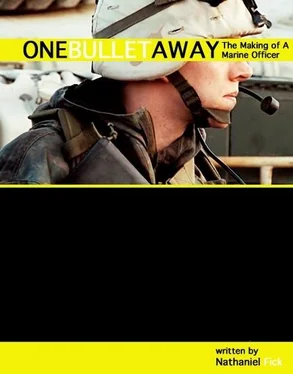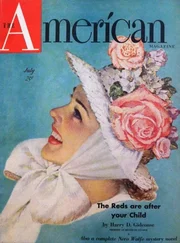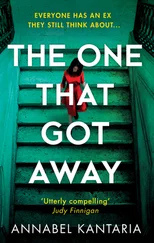I didn’t want to play kingmaker. At that point, our priority was to get life-sustaining services to people in need, not to empower local strong-men and allow our aid to become a tool of political advantage. I didn’t know whom to trust. Our only Arabic speaker was Hammed, and I wasn’t sure I could even trust him. Most of the time, he cowered in the back seat of the Humvee, afraid to be seen helping the Americans. He would say whatever he had to in order to save his own skin. So I delayed the decision. I decided to consult with the colonel and Major Whitmer back at the power plant and simply told the mullah that we would return in the morning to distribute water to his people. He thanked us and uttered a few words that Hammed translated as a blessing reserved for unknown strangers.
I brewed coffee in the morning, taking comfort in the simple ritual. We had dragged a cast iron stove down from one of the offices. It sat in the warehouse doorway, surrounded all day and all night by Marines on ammo cans and MRE boxes. My tin canteen cup was too hot to touch. I held it in gloved hands, blowing steam from the coffee and watching the sun rise over the fields beyond the fence.
We were ready to go, waiting only for Hammed to arrive. He insisted on walking to the power plant in the predawn darkness rather than allowing us to pick him up at his home. I watched Hammed come through the gate, a small figure in a jacket and tie stumbling along the rough dirt road. He waved jauntily to me but made straight for a group of Marines sitting around a coffeepot. They welcomed him warmly and pulled up another ammo can. A few minutes later, when I walked over to give them a ten-minute warning, Hammed held a canteen cup and was engrossed in a debate over the name of the youngest-ever Play-boy Playmate. His criticism of American culture was already starting to waver.
The night before, during our patrol debrief, I had asked higher-ranking officers in the battalion how I should deal with Mullah Mohammed. After the initial “fuck him” response, Major Whitmer agreed that our assistance shouldn’t be made a weapon in local power struggles. We were to drive into town and offer water to all comers. If the mullah didn’t like it, he and whatever suicidal followers he could muster were free to try to stop us. Follow-on peacekeepers, civil affairs experts, and civilian consultants could debate who was allowed to play in the rebuilding of Iraq. That wasn’t for us to decide. Our only goal was to prevent a humanitarian disaster from tearing the country apart. That meant food, water, shelter, and medical care for every single Iraqi, regardless of religion, social status, or former party affiliation. His reasoning made sense to me and became our guidance for the day.
We first drove downtown, into central Baghdad, to meet up with a water tanker at the Marines’ main logistics base. From the base, we escorted the tanker north on the road we had traveled the day before. I watched the wide-eyed tanker drivers in my mirror; they hadn’t been out on their own before. We wove through the same crowds thronging the outdoor vendors. The mosque’s minaret was visible over the rooftops ahead of us.
“Weapon! Three o’clock.” Reyes’s warning came over the radio, and I looked to my right. A teenage boy cradled a rifle, leaning against a building and staring us down. When we stopped, he cocked his head a bit higher, as if in challenge. My first thought was that he was only bait. As the Marines studied the walls and rooftops around the boy, I climbed from the Humvee and walked up to him. He let me get close before setting the rifle on the ground and stepping back from it. I picked up the ancient Enfield and slid its bolt back, dropping three rounds into my palm. The gun was clean and well oiled. I turned and walked back to the Humvee, throwing the rifle in the bed. The expressionless boy watched us go. If that had been a test, we had won.
We passed the mullah’s mosque and pulled off into a dirt lot on the other side of the road. The platoon set up a perimeter around the tanker. Expecting a frenzy, we strung cloth tape between the vehicles, controlling access to the water through one narrow entrance and exit. I was suspicious when no crowd gathered while we worked. After ten minutes, we still sat alone on the street corner.
“Motherfucker trumped us,” Gunny Wynn said, shaking his head. “I guess we know who’s boss around here.”
We gathered our tape and led the tanker north a few miles to a town we had not yet visited. Alongside the road, women dug down through the trash heaps to the shallow water table. Even little girls helped to cart home buckets of muddy water. As always, the men sat in the shade, watching the women work over the tips of their cigarettes.
The road split on the north side of the town of Al Jabr, enclosing what in the United States would have been a village green or town square filled with flowers or a gazebo. In Iraq, it was a flat piece of dirt with the supreme virtue of being mostly free of trash and raw sewage. We set up our cordon with the tanker in the middle and within minutes were thronged. People streamed from every corner of the town, carrying, pushing, and dragging receptacles of all kinds: plastic buckets, antifreeze bottles, rubber bladders, even a child’s wading pool. Tractors and donkeys did some of the lifting, but mostly it was done by women and girls. I watched in awe as seven-year-olds hefted five-gallon cans of water weighing forty pounds onto their heads.
Espera’s team pulled security on the road, and he leaned against the quarter panel of his Humvee to watch the melee. “Goddamn, sir, if we’d had to fight the women around here instead of the men, we’d have gotten our asses kicked,” he said.
I had placed Sergeant Reyes’s team north of the square where the two sections of road rejoined and disappeared around a bend. We worked the northernmost American zone, and I didn’t want a truck full of fedayeen to come barreling down the highway and blunder into a fight with us in the middle of a crowd of women and children. The other teams kept order among the people waiting for water. Gunny Wynn and I were talking with two Iraqi men when we heard shouting up on the road.
“Gun! He has a gun!”
“Hold your fire! He’s turning around.”
We ran to the pavement and saw a white Toyota Land Cruiser being stopped at gunpoint by Rudy’s team. Four men inside held up their hands in surrender. Apparently, they had been traveling south when they saw the Humvee sitting in the road. They tried to do a quick U-turn and in the process threw an AK-47 out of the window of the truck. Raising that rifle had nearly cost them their lives. Jacks saw the weapon and was about to fire his Mark-19 when the AK was dropped instead of aimed. He sighted in on the truck, ready to stitch it.
Wynn and I approached the Land Cruiser. The men inside looked well dressed and neatly groomed, traits we had noticed among the fedayeen and foreign fighters. The driver began to speak.
“We Kurdistan. Kurdistan. America friend. Come boom-boom Ba’ath Party. Boom-boom fedayeen. George Bush very good. We Kurdistan. America friend.”
He thrust a folded piece of paper at me. The top bore an official-looking embossed seal, and some of the writing was in English. From what I could decipher, it was a permit issued by the Patriotic Union of Kurdistan allowing the man to carry an assault rifle.
“These guys are peshmerga,” I said. I knew the Kurdish fighters were staunchly pro-American. They had been helping U.S. Special Forces fight Ansar al-Islam, a terror network based in northern Iraq. That afternoon, they were doing exactly what we’d been briefed they would — exacting revenge on the Sunni-dominated Ba’ath Party for atrocities committed against them under the Hussein regime. All the intelligence reports had a “wink-wink, nod-nod” quality. Like the Northern Alliance in Afghanistan, the peshmerga were thugs, but our thugs.
Читать дальше












